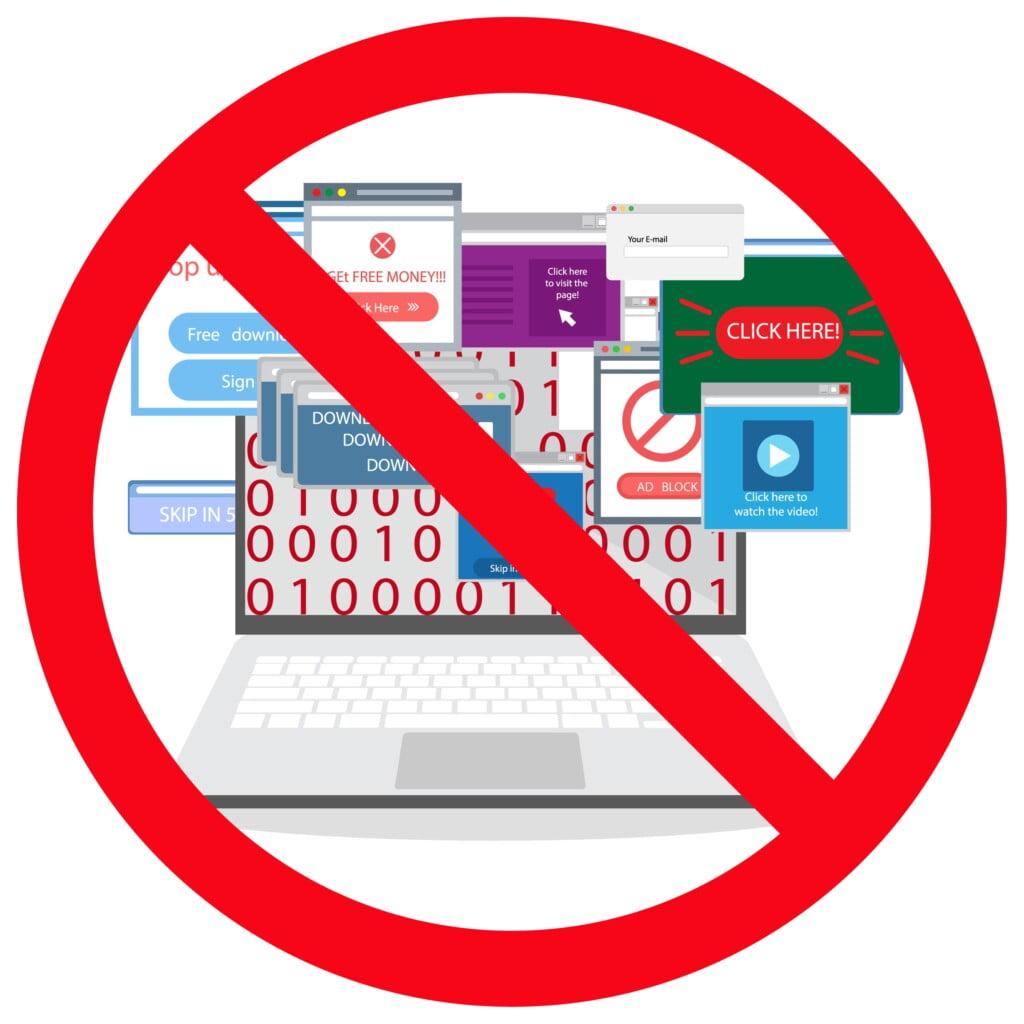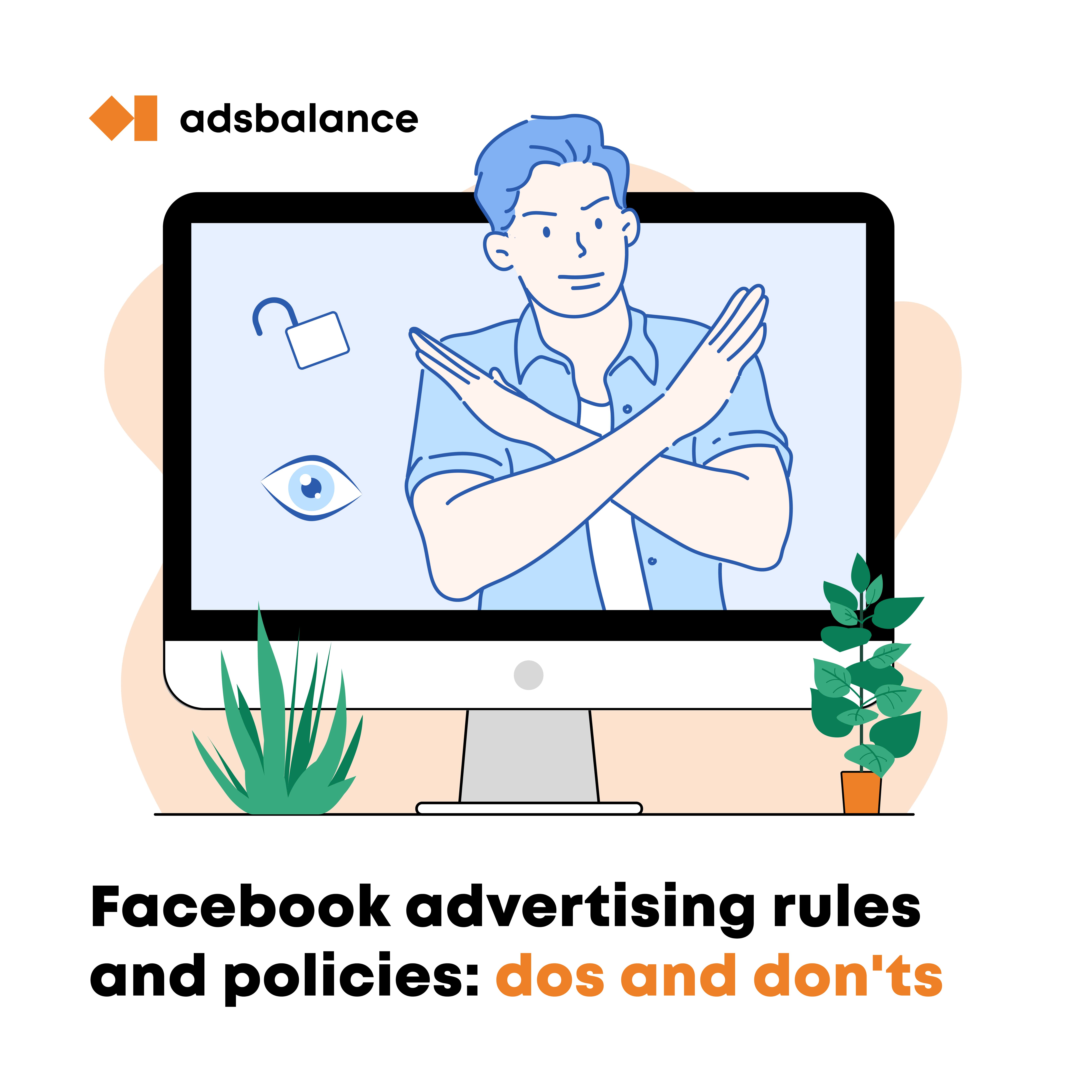
Facebook is THE place to market your product if you want to reach your target audience. Their incredibly large audience – 2.8 billion monthly active users to be precise – coupled with the ability to accurately target your specific audience gives you the ability to make the most out of your marketing budget. But before you can actually get your ads out to the public and working for you, you might want to be aware of what is and isn’t allowed so that you don’t run into problems getting your ads approved.
Facebook updates their ad policies and rules every once in a while, so every few months there are changes to the rules as they add new rules and alter old ones. In general, it’s good to know where to start by knowing what is and isn’t permitted. You don’t want to spend your precious time creating an ad you think will do great just to have it denied by Facebook because it contained content that isn’t allowed. So sit back and familiarize yourself with Facebook’s ad policy.
To start, let’s take a look at some of the things that you’ll want to keep in mind while creating your ads.
Do –
Follow the Community Standards

Simply put, these standards dictate what is and is not allowed on Facebook. Among the other various policies and rules that advertisements must follow, they must first and foremost meet the community standards set by Facebook. What the community standards disallow include, but are not limited to:
- All threats and calls to violence
- Content that threatens the safety of oneself, others, or the public
- Objectionable content such as hate speech, graphic violence, nudity, and cruel and insensitive content
- Spam, misrepresentation, and “false news”
- Content that is owned by someone else (a private person’s face is considered “owned” too!)
- These community guidelines are meant to provide a baseline for the extremes of what’s not allowed, whether it’s just a user post or ad content.
Making sure your content follows these guidelines is the first step to ensuring that your ad content is approved.
Take Restricted Content Into Consideration
There is indeed content that is entirely prohibited, but there is also content that is simply restricted. Much of this content requires prior approval to create ads if you sell a product or service in one of these categories. If your product or service fall under one of these categories, you will need to get prior written approval from Facebook before you can advertise:
- Alcohol. Any ad that promotes or even references alcohol must comply with local laws. Meaning if you’re marketing an alcohol product in America, you can’t market it to someone under 21 since that is the law. But if it’s in Canada, that age is only 19
- Online dating services, you will need to watch your language and how you phrase your copy. Saying things like “Meet other singles” is not allowed as you cannot imply you know anything personal about a prospect, such as knowing that they are single
- Online gambling and gaming. Any game where you have to make a purchase in order to win something of monetary value is considered under this category. Again it has to be marketed according to local laws because in many countries gambling is only allowed for those over the age of 18.
- Online Pharmacies and Over-The-Counter Drugs. You cannot promote prescription pharmaceuticals, only over-the-counter medicines and it must comply with all local laws.
- Subscription services such as services that include automatic renewal, free-to-pay conversion billing products, as well as others have more requirements than other services, and are therefore subject to higher scrutiny.
- Financial and insurance products and services must disclose any information regarding fees and more clearly within the landing page, must be targeted at those over 18, and cannot directly request personal financial information.
Branded content, like a person promoting a product for a company or brand, must use the braided content tool. - Cryptocurrency products and services are subject to prior written permission, this includes ads to promote cryptocurrency trading or related products and services.
- Cosmetic Procedures and Weight Loss must be marketed only to those over the age of 18.
- Social casino games, online games that simulate casino gambling but do not provide the opportunity to win money or money’s worth can only be promoted to people 18 or older.
Pay Attention to Your Landing Page
Did you know that Facebook doesn’t only look at your ad? It also pays attention to the site your ad links to. Your landing page matters if you don’t want to get your ad blocked by Facebook. Here are some things you’ll want to consider when it comes to your landing page:
- Make the page clear, concise, and easy to navigate.
- Double-check that the content on your landing page matches and is relevant to your ad.
- The ad and landing page should complement each other, the branding should be clearly connected.
Here are some issues with your landing page that could get your ad denied:
- Excessive embedded or pop-up ads
- Low-quality or non-original content
- Shocking or sexualized ad imagery
- Using the landing page to monetize the views from Facebook ads
Essentially, your landing page should match your ad, be devoid of other ads and any shocking; vulgar; or low-quality content, and it should be clear upon first glance what the landing page wants of the user.
Use creatives that are high-quality and relevant
Creatives include the image or video as well as the headline, text, and call-to-action for your ad. Your creatives are what will be seen by your target audience, so of course there are rules about what you can and cannot include. In general, you want to make sure that your creatives:
Your creatives should be original, relevant to the product or service you are selling, and should not be controversial. Remember that they directly impact whether or not your ad gets approved by Facebook. The point is to run an ad campaign that compels the user to take the action you desire from them, and Facebook would like you to do that with content that is original and non-offensive.
Watch What You Do With Collected Data
You are allowed to collect data from the campaigns you run, but you must be careful what you do with data. According to Facebook, the only way you should be using the data you collect is “to assess the performance and effectiveness of your Facebook advertising campaign. This means that you cannot:
- Give away the data to a 3rd party to use
- Give away the data to any other advertising or monetization related service
- Share the data with anyone except internally or with a third party acting on your behalf, like a service provider
Many Facebook users express concern over their privacy, which is why Facebook has implemented these policies. Their only intention for you using the data is for you to better your own marketing campaigns.
Now that we’ve discussed some of what you should do when designing your Facebook ad, let’s consider some things that you definitely shouldn’t do.
Don’t –
Advertise Any Prohibited Content
Advertising any prohibited content is just like advertising anything against the community guidelines, your content will be flagged and denied immediately. This includes:

- Illegal products or services
- Discriminatory Practices. Facebook does not allow any kind of discrimination against any race, ethnicity, religion, age, sex, sexual orientation, etc.
- Tobacco, drugs, and related products, meaning anything that implies use of these items as well as paraphernalia
- Unsafe supplements, which Facebook has sole discretion to decide
- Weapons, ammunition, or explosives
- Adult products, services, and content
- Third-party infringement meaning it cannot infringe or violate any copyright, trademark, privacy, publicity, or other personal or proprietary rights
- Sensational content that is shocking, inflammatory, or excessively violent
Personal attributes. Earlier when we talked about prohibited content, we mentioned how you can’t imply you know the personal attributes of a prospect. This means you cannot say things or imply that you know someone’s gender, race, ethnicity. - Religion, age, financial status, or any identifying information. A lot of this applies to dating services but can also apply to say, financial institutions. If you’re marketing a financial product or service, you cannot imply that you know someone’s financial status.
- Misinformation or misleading claims. Misinformation is claims that have already been debunked by third-party fact-checkers and misleading claims are claims that are deceptive or false, like claiming a product works better or does more than it actually does.
- Cheating and deceitful practices, meaning products or services that a meant to engage a user in cheating or deceitful practices
- Payday loans, paycheck advances, and bail bonds
- Multi-level marketing is completely prohibited, meaning things like pyramid schemes
- Penny auctions
- Sale of body parts
Use Too Much Text in Your Image
In the past Facebook had a rule that up to 20% of the image could be covered in text, but that rule has since been removed (we are absolutely serious). That being said, Facebook still recommends that you only cover a small area of your image in text, if at all, because statistics have shown that the more text in an image, the less effective the ad and the smaller the reach. Try to only use text in an image if absolutely necessary.
Misrepresent or Misuse Facebook’s Brand Assets
Facebook does not play when it comes to using their branding, and they are very selective in what they allow when it comes to their own Facebook branding as well as Instagram. Basically, you can’t use an altered or outdated version of the Facebook or Instagram logo, and by using the logo, it should not be implied that you are in partnership with Facebook or Instagram. Not only are they picky about their own branding and logos, your ad cannot contain any trademarks, names, domain names, logos or other content that imitates or could be confused with Facebook. Meaning if it just imitates or looks like Facebook or Instagram branding or logos, it will be denied. If you use a screenshot of Facebook, Messenger, or Instagram in an ad, it has to accurately depict how that user interface appears and functions in the product and it must be relevant.
Create Lead Ads Questions That Ask for Sensitive Information
Since lead ads allow advertisers to collect information from prospects, Facebook has obviously implemented some limitations on what kind of information you are allowed to collect from you lead ads. If your lead ads questions ask for any of the following types of information and you haven’t already been given written permission by Facebook, the ad will be denied:
Much of this restricted information is to protect users’ data and privacy, so your lead ad question needs to be relevant to what you are marketing, but shy away from asking about sensitive information like what is mentioned above.
Don’t Try To Bend the Rules
If your ad gets flagged and denied because it is close to breaking one of the rules, that will create more work for you as you’ll either have to go back and change your ad or you’ll have to submit an appeal — and the ad still may not get approved. You’ll end up wasting time as well as money so it’s better to be safe than sorry and avoid breaking the rules altogether.
Facebook’s ad rules and policies are in place to ensure that the content run on their platform is not low-quality or harming anyone. Even if your product or service falls under one of the restricted categories, you can still produce high-quality ad campaigns that comply with Facebook’s rules and policies. So what should you focus on when creating your Facebook or Instagram ads besides avoiding content that will get your ad denied? Well let’s continue with our theme and talk about some ad do’s and don’ts.
Do –
- Know Your Target Audience
It isn’t just about correctly targeting your audience so that your ads reach them, it also relates back to how you design your ads. Sure your ads can reach your target audience, but an effective ad gets the target to complete the action the ad is designed for. You have to know your target audience in order to develop an ad that will compel them to take the action you want them to.
- Focus on Your Creatives
Poorly written or designed creatives will not get you the desired return. You want to capture people’s attention and you only have a few seconds to do that. Your creatives should clearly demonstrate your product or service and why your target audience needs it.
- Do A/B Testing
A/B testing is showing two versions of the same ad to test which one performs better. The best way to optimize your ads is to figure out which ad versions work best. The key is to only change one variable in your different ad versions so that you can determine which one works better.
Don’t –
- Ignore the Data
The data you get from Facebook ads is invaluable and they want you to use it to make your own campaigns better. In fact, that’s pretty much the only thing they want you to use it for and you’re doing yourself a disservice if you don’t utilize it to better your ad campaigns. The data can show you which ads get better reach, which ads produce more actions, who engages more with your ads, etc. You can then use this to optimize your marketing budget so you’re not spending money on ads that aren’t effective.
- Forget a Call-To-Action
Each ad should clearly let the user know what you would like them to do which, in turn, helps them take action. Forgetting a CTA can negatively affect the number of conversions you get which is why it’s so important to have one.
Facebook ad campaigns can seriously benefit your brand and they are a great way to make your marketing budget work for you so that you actually spend money to make more money. And now that you are aware of Facebook’s rules and policies and as well as some other tips that can help you create the most effective ads, you’re ready to get started!
But we get it, it can be a lot to remember everything you need in order to create an ad that will not only get approved, but also reach your target audience and produce the desired results. That’s why we at Adsbalance are your service. Our expertise on everything from ad creatives to optimization will have your ad campaigns seeing results in no time. Just contact us to get started on your next ad campaign!




